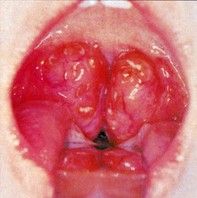Peer Reviewed
Feature Article Respiratory medicine
Diagnosing and treating the acute sore throat
Abstract
Acute sore throat may present as part of a generalised viral upper respiratory tract infection, be a symptom of specific pharyngeal infection, or be part of a generalised systemic disorder. The diagnosis is mainly clinical. The doctor needs to keep clearly in mind the differential diagnoses appropriate to the age of the patient, and also an appropriate treatment regimen.
Key Points
- Most acute sore throats are due to viral illness.
- Although on clinical grounds it is very difficult to differentiate a viral from a bacterial infection, aggregates of pus on the tonsils suggest bacterial infection, and diffuse mucosal hyperaemia plus or minus granular pharyngitis is usually viral in aetiology.
- Throat infections, whether bacterial or viral, are usually self-limiting, and if antibiotic therapy is being considered for a bacterial infection the risks and benefits should be discussed with the patient.
- In most cases of acute sore throat, treatment consists mainly of symptomatic relief.
- If the acute sore throat has any associated mucosal bleeding, the attending clinician should be alerted to the possibility of an underlying sinister condition, such as acute leukaemia.
Purchase the PDF version of this article
Already a subscriber? Login here.

